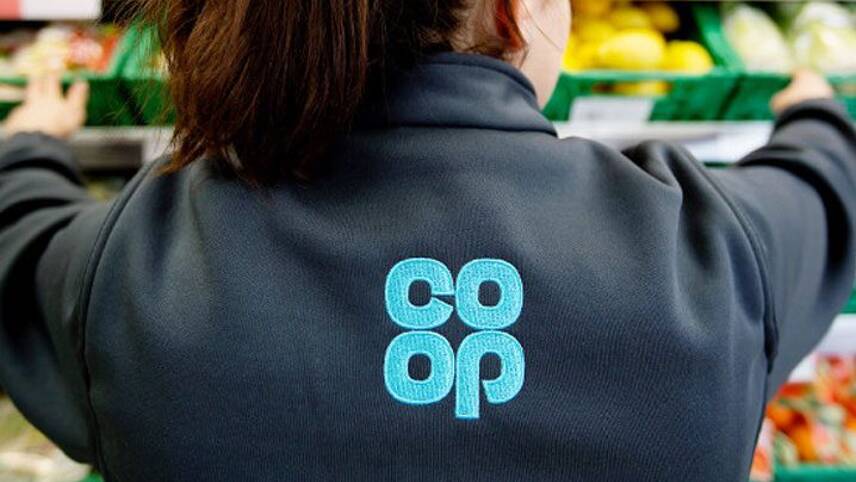Register for free and continue reading
Join our growing army of changemakers and get unlimited access to our premium content

Co-op has committed to doubling its annual funding for the Co-op Levy Share initiative.
Earlier this year, Co-op secured validation from the Science Based Targets initiative (SBTi) for its near-term and overarching net-zero targets, pledging to achieve net-zero emissions by 2040.
The new targets announced today (22 May) include a reduction in carbon emissions across the supply chain, a decrease in operational food waste, and an increase in funding for apprenticeship programmes through the Co-op Levy Share initiative.
Specifically, Co-op aims to have two-thirds of its suppliers enrolled in the SBTi by the end of 2025, starting from a base of 37%. Additionally, the company targets a reduction of approximately 650 tonnes of food waste per year across its stores and depots.
The Co-op’s Revolving Credit Facility, which remains undrawn, is backed by several financial institutions, including Lloyds Bank, Barclays, NatWest, ING Bank, Handelsbanken and Bank of Ireland.
Co-op’s chief financial officer Rachel Izzard said: “This marks a further step forward towards our goal of achieving net-zero across our operations by 2035.
“The banks supporting Co-op share our commitment to these important areas, and their backing will go a long way to facilitating the implementation and achievement of our plans.”
Lloyds Bank will lead the structure and coordination of the sustainability-linked facility.
Lloyds Bank’s head of retail and consumer goods Aled Patchett said: “We take pride in supporting the Group in taking swift action in several important areas, demonstrating its leadership in this domain and reinforcing its commitment to meeting its targets comprehensively.”
The action plan for new sustainability goals
Co-op has committed to doubling its annual funding for the Co-op Levy Share initiative. Since its launch in 2021, the initiative has raised more than £23m in pledges and supported more than 2,000 apprenticeships. The retailer now aims to increase pledges to £9m in 2024 and £10m in 2025.
In terms of supply chain emissions, the company plans to support its suppliers through partnerships, providing sustainability guidance and embedding sustainability goals into contracts and business plans.
Co-op has also committed to halving food waste generated by its stores and depots by 2030, through its collaboration with WRAP (Waste and Resources Action Programme). The new target of reducing 650 tonnes of food waste annually will be pursued through operational assessments, partnerships, and raising customer awareness about food waste.


Please login or Register to leave a comment.